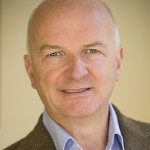 Should the Church support liberal social and ethical reforms? Bishop Mike says we need to remember who we are and the values we live by before answering that question.
Should the Church support liberal social and ethical reforms? Bishop Mike says we need to remember who we are and the values we live by before answering that question.The Church is part of the problem, not part of the solution.
This is the message that seems to be coming over loud and clear in the public space. First the General Synods failure to commit to women bishops and more recently the recent debate in the House of Lords on the Marriage (Same Sex) Couples Bill has raised the question in the eyes of many would indicate that this is true and becoming more widespread in the minds of many as to whether the Church is fit for purpose in a progressive liberal climate. The sheer hostility towards Bishops and other Christian contributors by some in the debate was tangible.
Should the Church support every social or political change that a Government proposes with a bias towards liberality? Many politicians think so: I can tell you from personal experience that they are both bemused and irritated when a bishop chooses not to vote with the Government.
But we are not a State Church as some politicians seem to think but a Church established by law and therefore our role is to be the conscience of the nation rather than a deliverer of government policy.
As Bishops in the Lords, we want to speak up for the poor and the marginalized and when we see welfare reforms that save, in comparative terms, very little money but push low income families into poverty, we rightly agitate. When we see legislation that is so full of viruses, however virtuous the intention behind the legislation, we have to make ourselves clear. Integrity and commitment to our values would mean nothing less. We want to retain our responsibility to speak prophetically to the nation and that includes the Government.
I would argue that our responsibility as a Church is to tap the brake before we can confidently step on the accelerator when it comes to legislation and some social change. If after robust debate we can see goodness and wholeness for society as a result of such change, we can support it. If however we see both unintended consequences and damage ahead we need to be more cautious. I ask myself, is a social and ethical reforms more or less likely to contribute to communities of wholeness with Christ at the centre?
There are some big issues in the offing to which the Church will want to contribute: the ethics around assisted suicide, pornography and the law, the environment, genetic medicine (thank God for people like Bishop Lee who can use his experience to contribute to this debate), civil liberties in a world of terrorist threats and commerce and banking to name but a few.
My point is simple. We need to contribute intelligently to matters of social reform with the right tone and volume and in ways that reflect our values as Christ-followers. A great sadness to me in the Same Sex Marriage debate was the fact that I received many pieces of correspondence in which the tone and volume was all wrong and, in a few cases, hateful.
We claim to want communities of wholeness with Christ at the centre. Everything we do (and we will not always agree on some of the components) should be to that end. After robust engagement and prayer we need to come to a mind and then communicate that mind in the public space. I think our values are righteous and good and the greatest of these is agape love.
Much in our churches does needs to change how we connect with todays cultures, our fantasy that if we do the same old things we will get some different outcomes and thats what our Growth Programme seeks to address. But our values do not change.
We might need to re-imagine what we are, but we really do need to hold on to who we are.
+Mike
August 2013